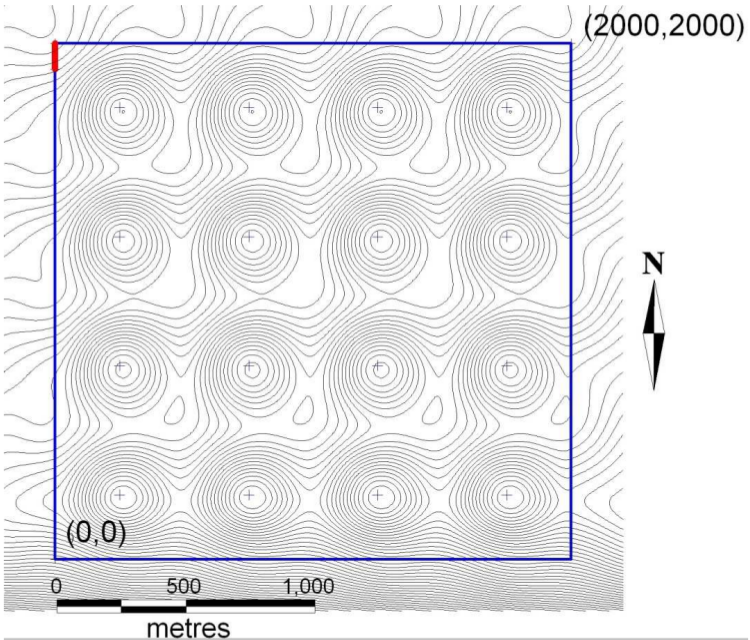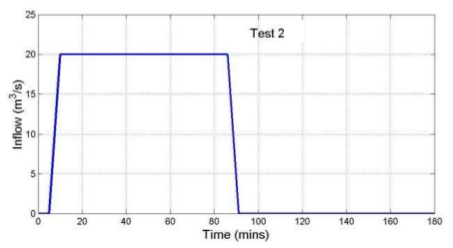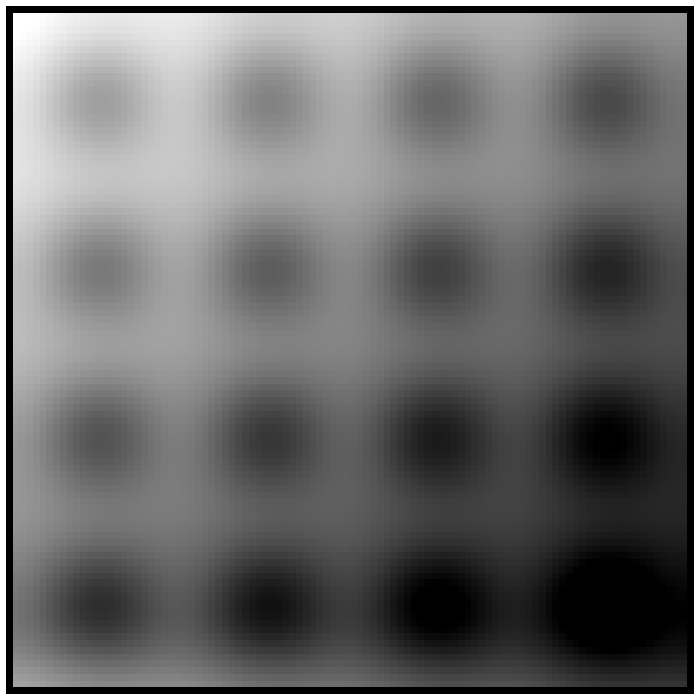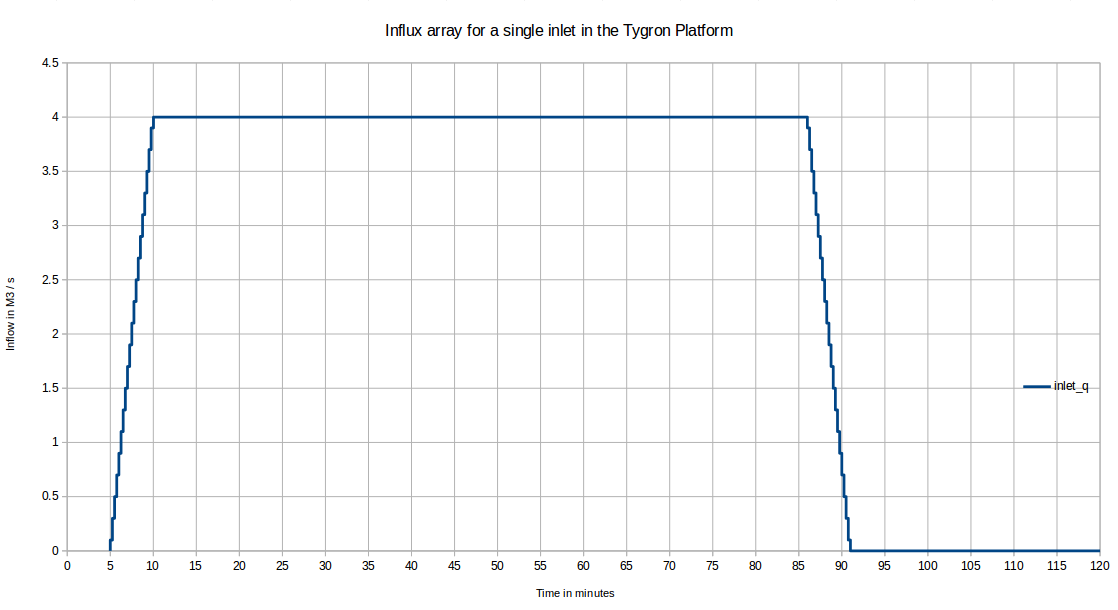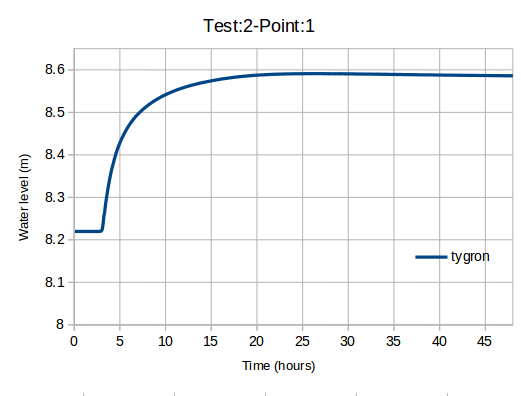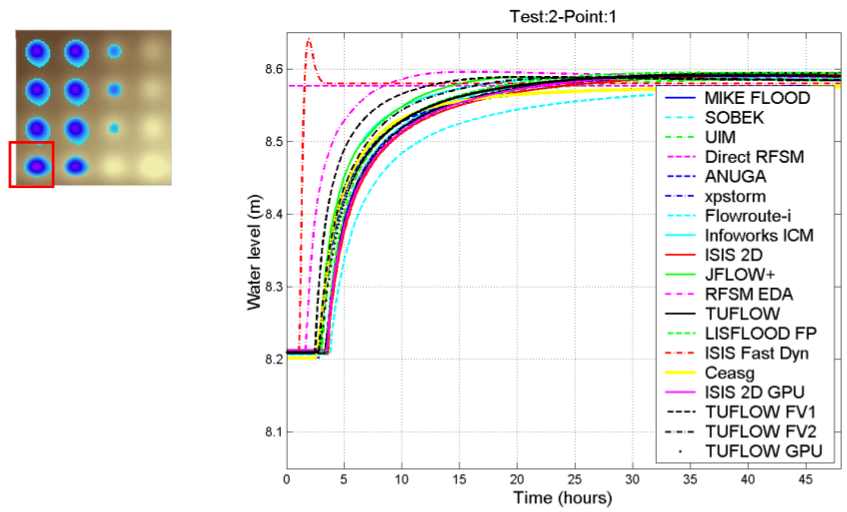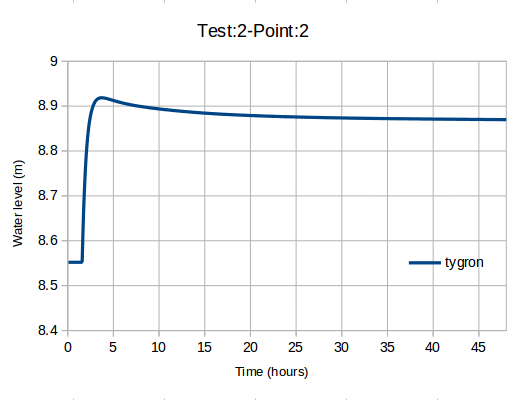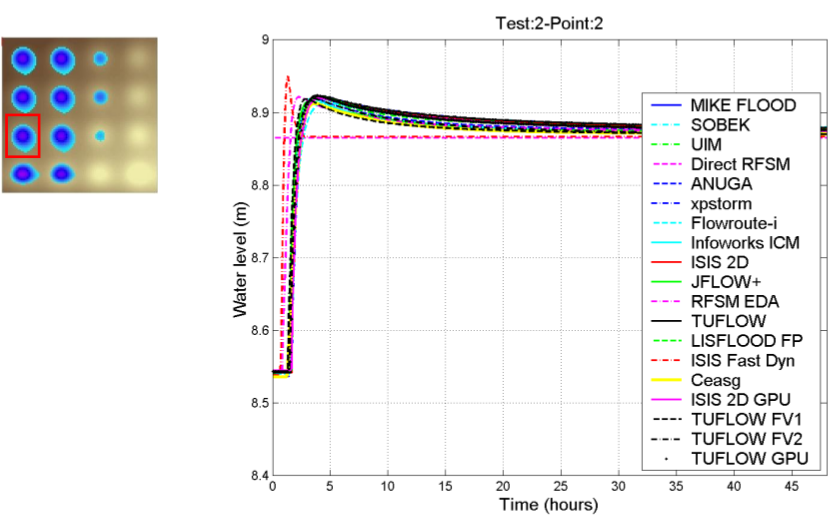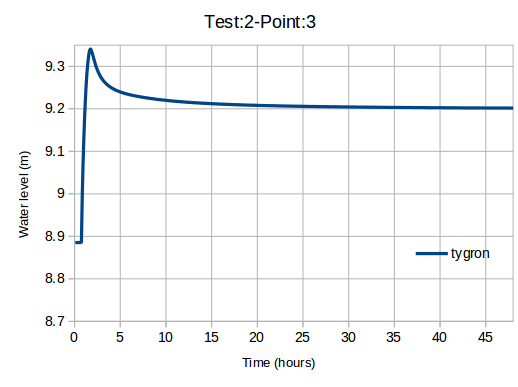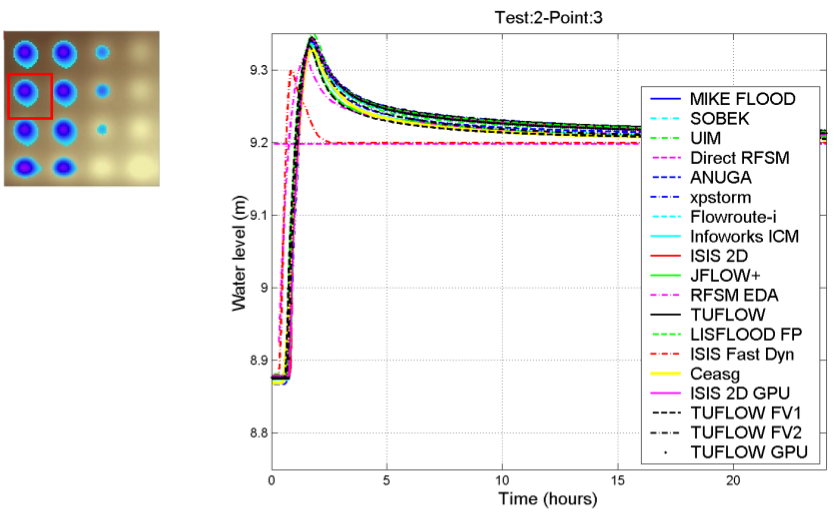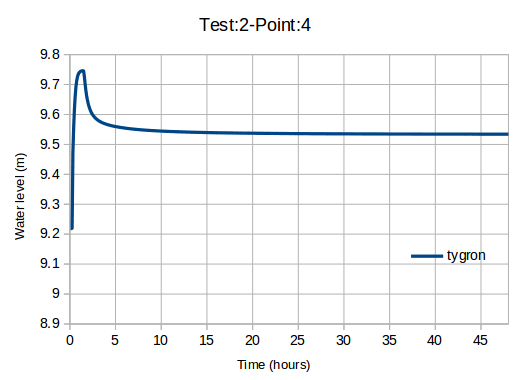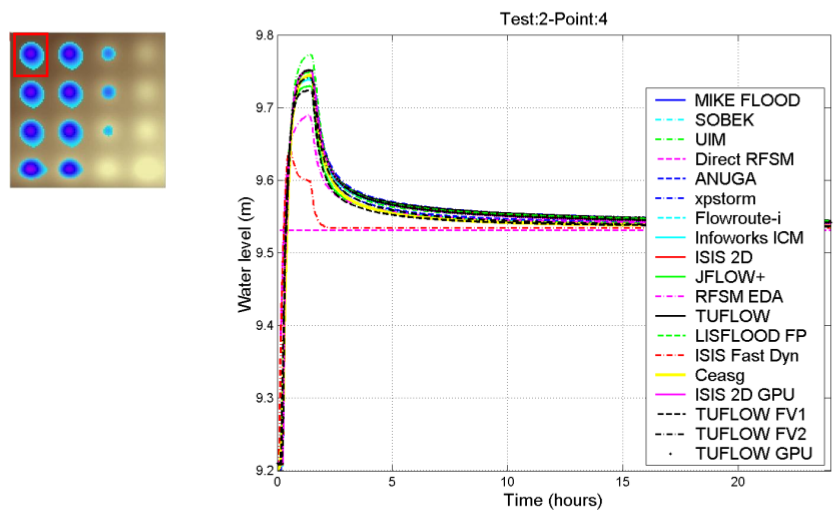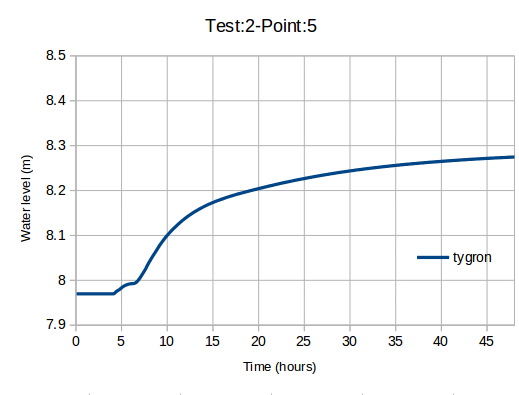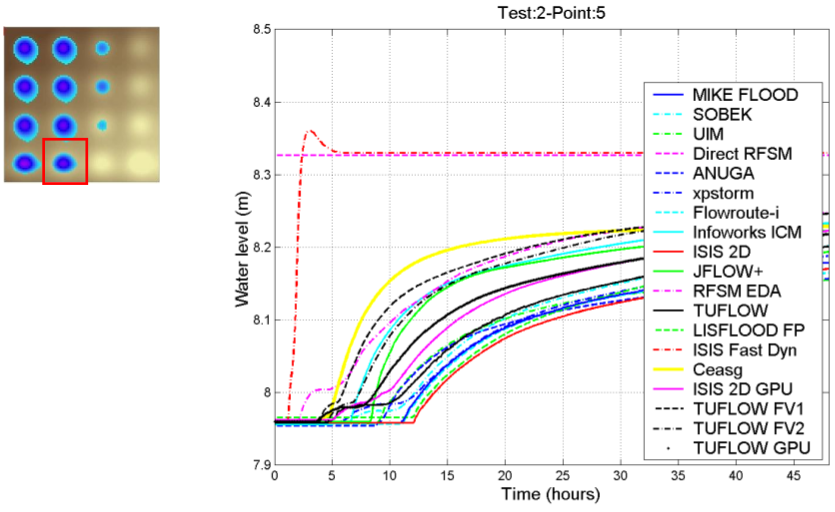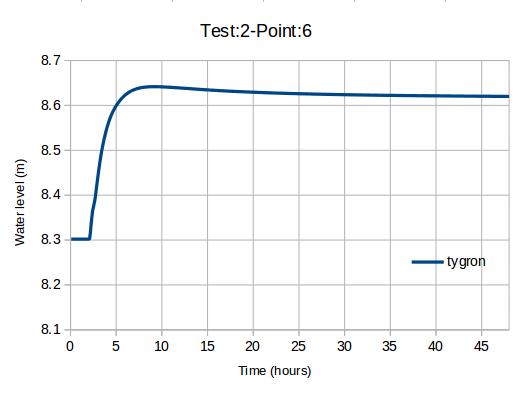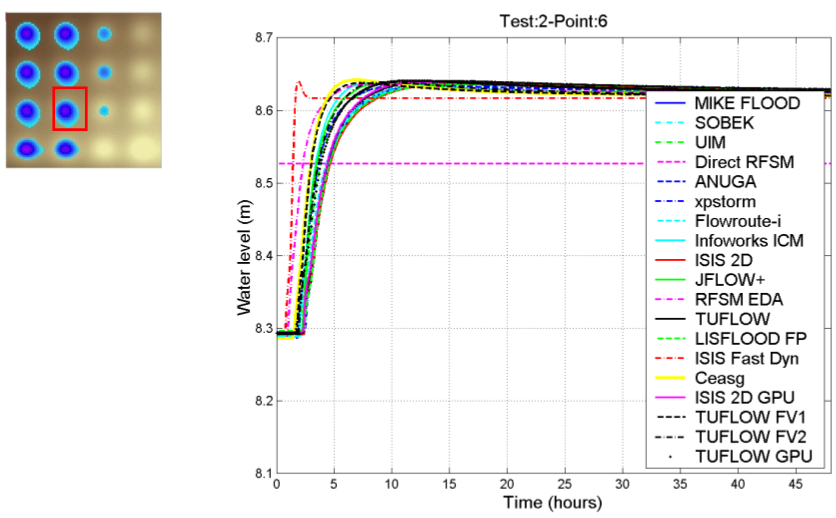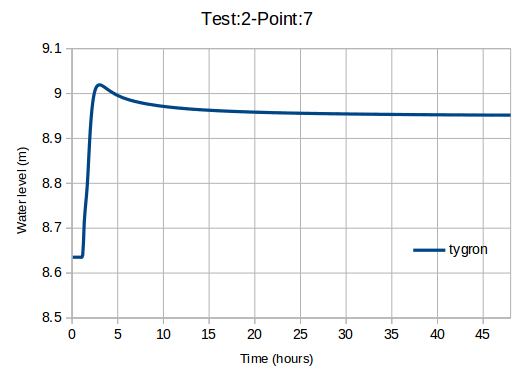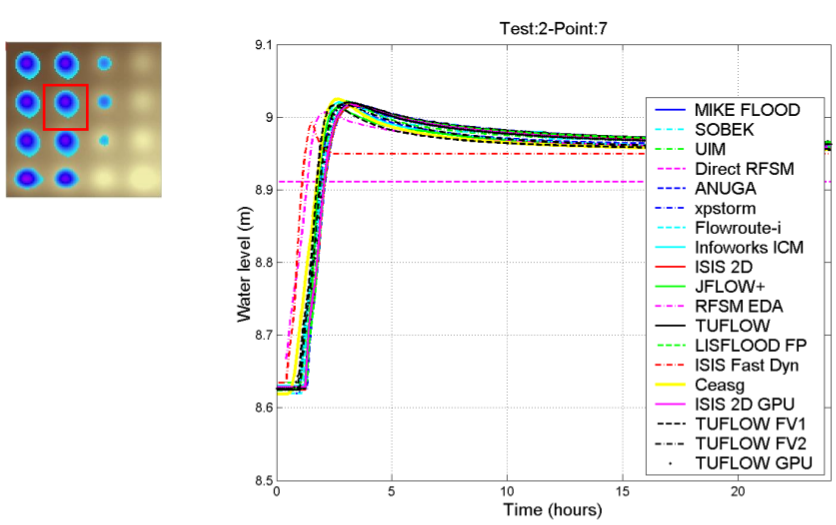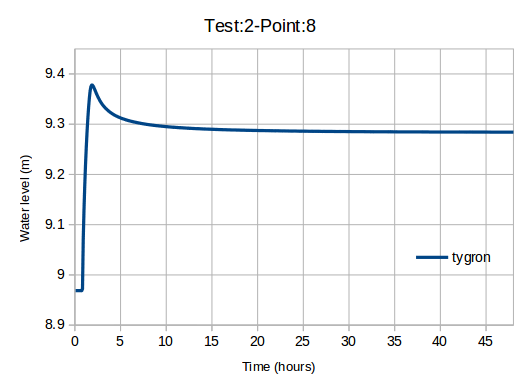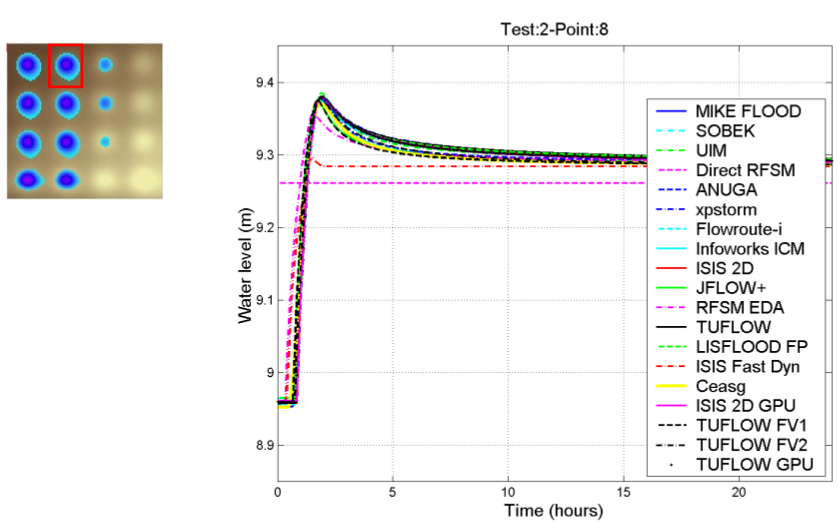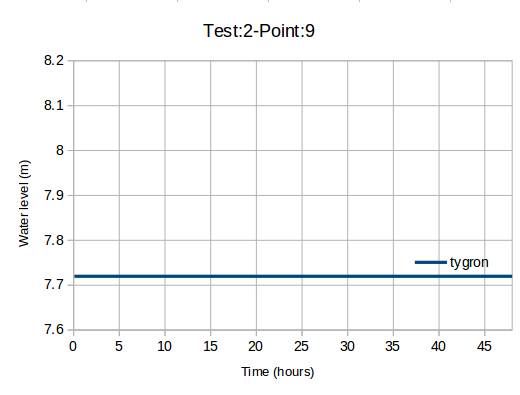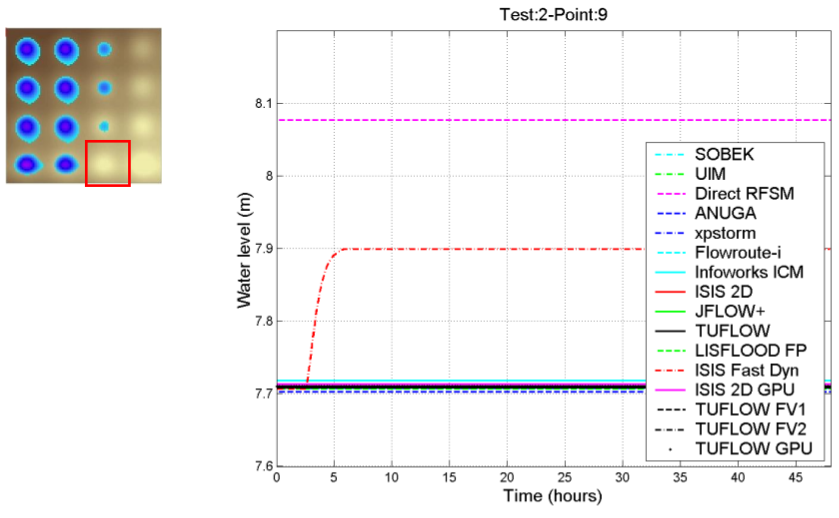UK EA benchmark 2 (Water Module)
This page reports on the performance of the Tygron Platform's Water Module by means of the UK EA Benchmark Test 2 – Filling of Floodplain Depressions.
The test has been designed to evaluate the capability of a package to determine inundation extent and final flood depth, in a case involving low momentum flow over a complex topography.
Description
The area modelled, shown in Fig. a, is a perfect 2000 m x 2000 m square and consists of a 4 x 4 matrix of ~0.5-m deep depressions with smooth topographic transitions. The DEM (digital elevation model) was obtained by multiplying sinusoids in the north to south and west to east directions, and the resulting depressions are all identical in shape. An underlying average slope of 1:1500 exists in the north to south direction, and of 1:3000 in the west to east direction, with a ~2-m drop in elevation along the north-west to south-east diagonal.
The inflow boundary condition was applied along a 100-m line running south from the north western corner of the modelled domain, indicated by a red line in Fig. a.
A flood hydrograph with a peak flow of 20 m3/s and time base of ~85 minutes is used. The model was run for 2 days (48 hours) to allow the inundation to settle to its final state.
Initial and boundary conditions
- Initial condition: dry bed
- Inflow along the red line in Fig. a. Location and tables provided as part of the dataset
- All other boundaries are closed
Parameter values
- Manning’s n: 0.03 (uniform)
- Model grid resolution: 20 m (i.e., ~10 000 nodes within the area modelled)
- Simulated time: 48 hours
Technical setup
The provided ascii height file named test2DEM.asc is first imported. It has a cell size of 2m, while the test is expected to run on a 20m grid. Therefore, it will be automatically rescaled by the grid rasterizer. Secondly, the area of interest is 2000 by 2000 m. The original dem had an offset of -200 meters, which we cropped down to -20 meters (1 grid cell), which we could use for the border cell. The rescaled and cropped .asc-file is packed in the down below.
In order to regulate the water level according to the water level graph, we used the following setup: Inlet objects were placed on gridcells with x = 1 and y = 1 .. 5 , so 5 in total. Each inlet therefore has a single cell. The inlets were configured as:
- External area (m2): 1 000 000 000;
- Water level (m): 1;
- Threshold (m): none;
- Inlet Q (m) : 20 m3 /s in total, so 4 m3/s per inlet. The following image shows the inlet q with discrete steps.
Output as required
Stats
- Software package used: Tygron Platform
- Numerical scheme: FV (Kurganov, Bollerman, Horvath)*
- Specification of hardware used to undertake the simulation:
- Processor: Intel Xeon @2.10GHz x 8,
- RAM 62.8 GiB,
- GPU: 2x NVidia 1080
- Operating system: Linux 4.13
- Time increment used: adaptive:
- Grid resolution: 10 m.
- Simulation time:
- Object flow: 96985.64 m3
- Remaining volume water: 96982.30 m3
Point graphs
Measured point graphs are displayed below:
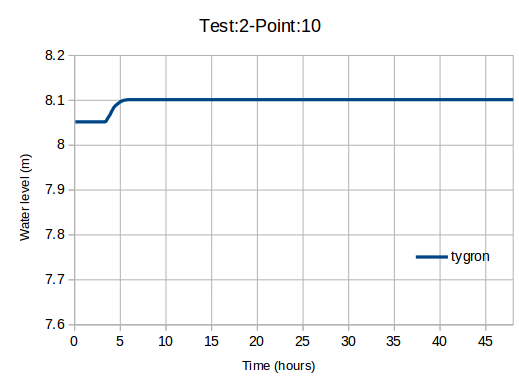
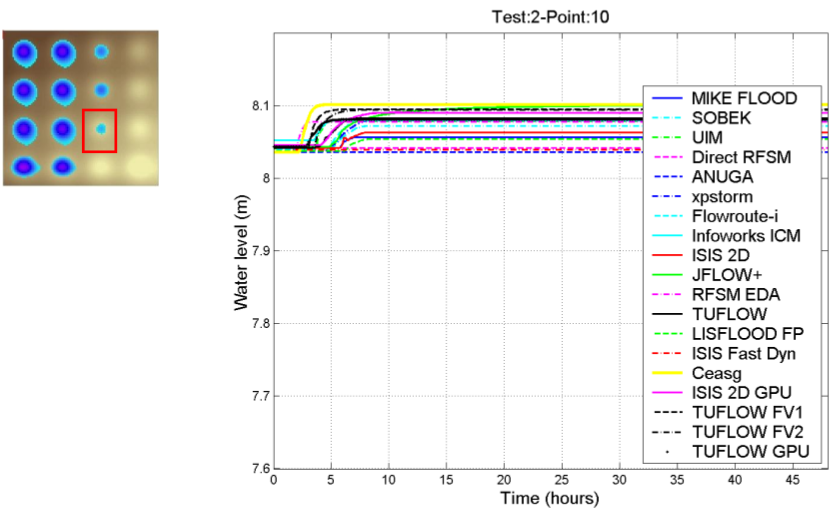
- Graph of point 10 generated by the Tygron Platform on the left and generated by others on the right.
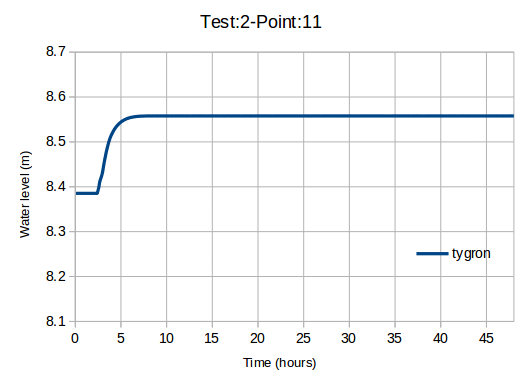
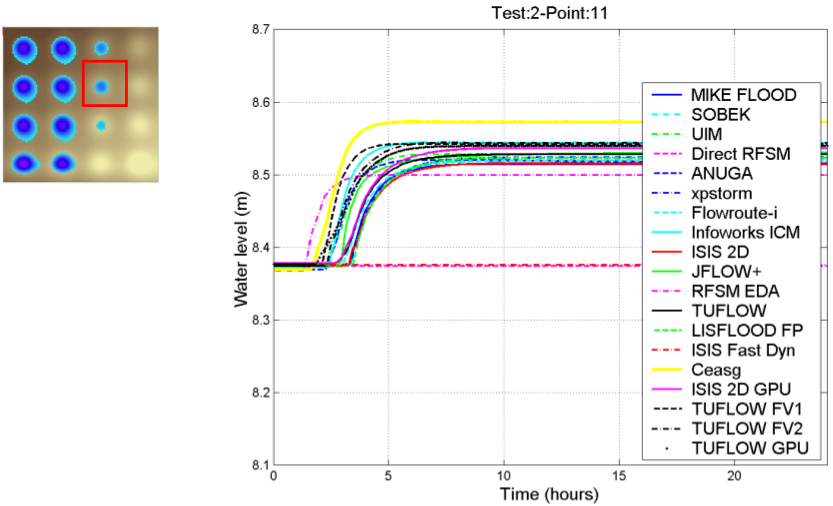
- Graph of point 11 generated by the Tygron Platform on the left and generated by others on the right.
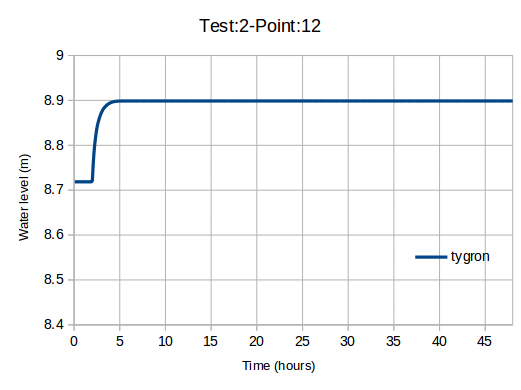
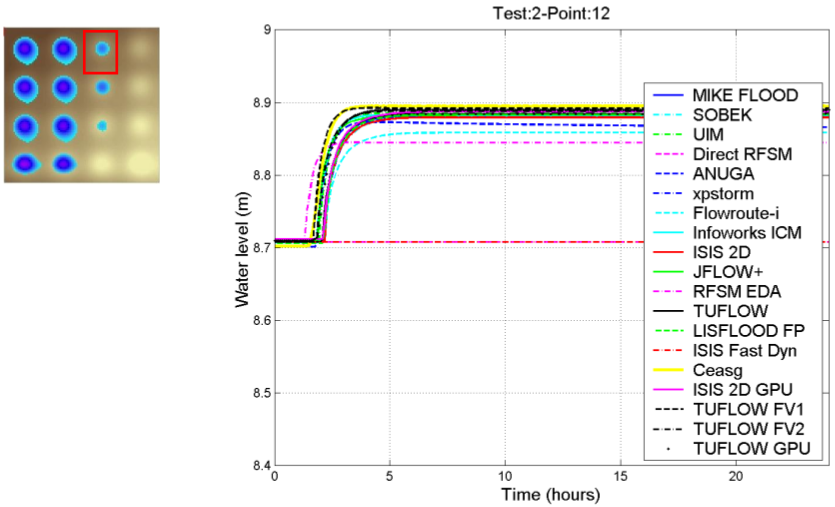
- Graph of point 12 generated by the Tygron Platform on the left and generated by others on the right.
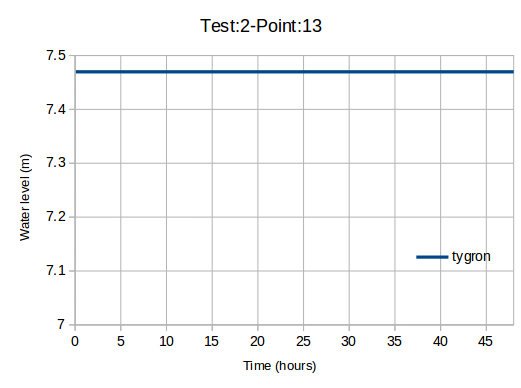
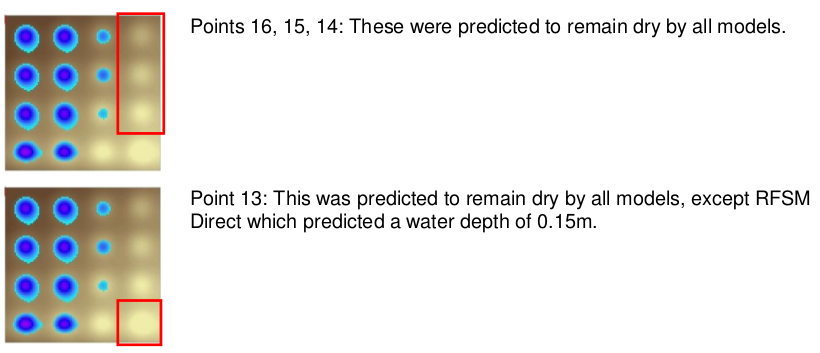
- Graph of point 13 generated by the Tygron Platform on the left and generated by others on the right.
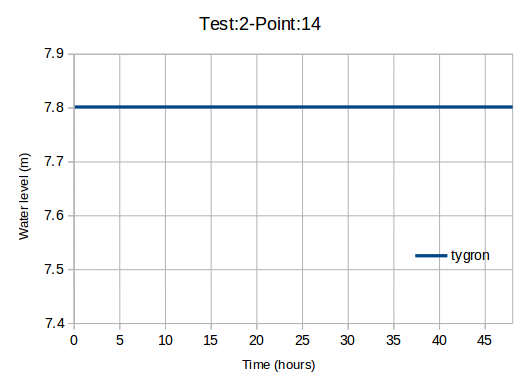

- Graph of point 14 generated by the Tygron Platform on the left and generated by others on the right.
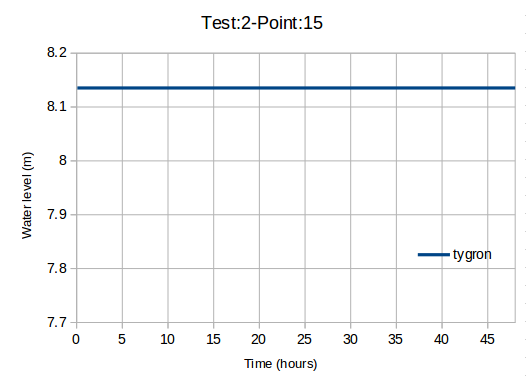

- Graph of point 15 generated by the Tygron Platform on the left and generated by others on the right.
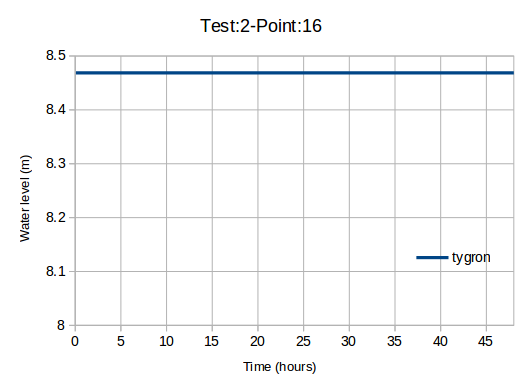

- Graph of point 16 generated by the Tygron Platform on the left and generated by others on the right.
Last frame
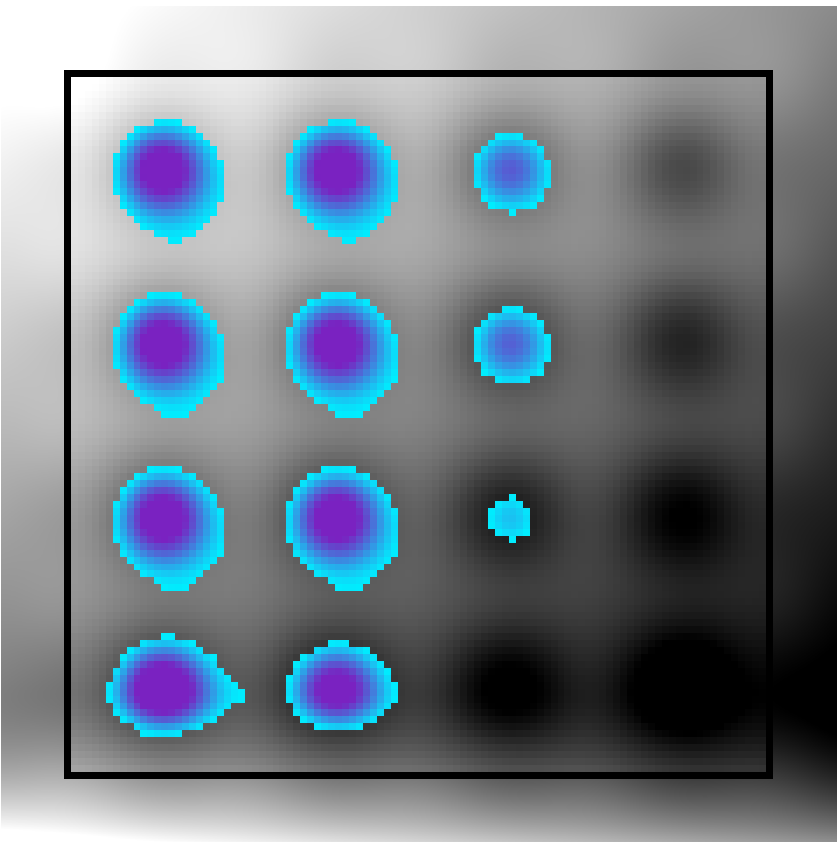
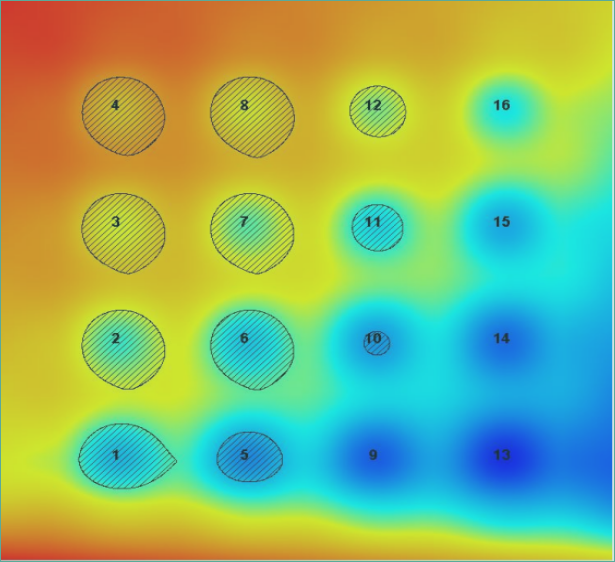
- Last frame with waterlevels generated by the Tygron Platform on the left and generated by others on the right.
Notes
- Tests are run with multi gpu setup. For small cases like this, running it on a single gpu is actually faster. Furthermore, requesting 576 timeframes further bogs it down. In comparison: 1 gpu with 1 resulting timeframe runs in: 8 seconds, which is +- 53% faster compared to 2 gpu's with 576 timeframes.
